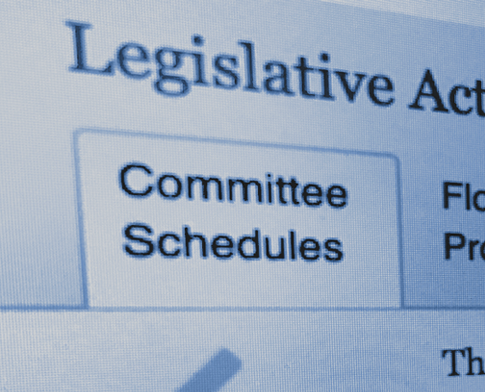Trade Update (July 16)
Section 232 Update
On Thursday (July 11), the World Trade Organization (WTO) said it has terminated disputes brought against the US Section 232 tariffs on steel and aluminum by Canada and Mexico. The decision came as a result of the US agreeing in May to remove the import tariffs on the two countries. In two separate complaints filed with the WTO in June 2018, Canada and Mexico claimed that the US duties of 25 percent on steel imports and 10 percent on aluminum imports were inconsistent with provisions of the WTO’s General Agreement of Tariffs and Trade and with the WTO’s agreement on safeguards. China, the EU, Norway, Russia and Turkey also filed requests with the WTO challenging the US tariffs on similar grounds, which are ongoing. The US in May reached an agreement to remove the Section 232 tariffs on steel and aluminum imports from Canada and Mexico without imposing quotas to cap imports at a certain level. As part of the deal, the countries have agreed to implement measures to prevent imports of steel and aluminum that is unfairly subsidized or sold at dumped prices and prevent the transshipment of such steel and aluminum between countries.[1] Following the removal of the Section 232 tariffs, steel imports from Canada were expected to rise 19 percent in June, while steel exports from Mexico to the US were expected to be up 23 percent with the country’s May import total, according to the Department of Commerce.
House Democrats Cite Progress on USMCA, Passage Still Unclear
The House Democrats working group tasked with negotiating the United States-Mexico-Canada-Agreement (USMCA) said Thursday that “progress” has been made with the United States Trade Representative (USTR) Robert Lighthizer. However, the group still has serious concerns about provisions in the trade agreement. Rep. Jimmy Gomez (D-CA.), a member of the working group, said Thursday’s talks with Lighthizer became heated due to differing views over the timeline for a formal vote. “It was contentious. I think there’s frustration on both sides on the pace of things, but I think we’re having good discussions on just the provisions that the speaker (Pelosi) laid out.”[2] Lighthizer and the Trump administration have repeatedly pressed to get trade deal passed before Congress breaks for the August recess. They’ve also expressed their concern that the deal could get caught up in the politics of the 2020 presidential election if otherwise. That being said, House Speaker Nancy Pelosi (D-CA) has been adamant that Democrats will not consider the deal until the administration addresses a variety of prevailing concerns, including provisions on enforcement, labor, environmental standards, and drug pricing. Those concerns likely push the agreement’s passage to Fall at best. Even with its passage in the House, the Republican-controlled Senate would likely need to find Democratic votes, as some free-traders continue to have lingering concerns about certain components of the USMCA.
US-EU Trade Deal
Speaking of trade deals….German Economy Minister Peter Altmaier said Wednesday the US and European Union (EU) can still reach an industrial goods agreement by year’s end, barring sufficient “political will” from both sides. Altmaier made the remarks following a meeting with US Treasury Secretary Steve Mnuchin. He added that he had a “constructive” meeting with Lighthizer, noting “We may perhaps have a chance to come to solutions in the coming weeks, clearly before the end of the year.” Altmaier said his top priorities were averting US tariffs on European cars imported to the US and resolving the more-than 15-year dispute between Boeing and Airbus. Both the US and EU have threatened tariffs on one another as a result of that dispute. The WTO arbitrator is due to decide as early as next week how much of the $11.2 billion in tariffs proposed by Washington can be applied. Altmaier said the WTO was expected to rule several months later on possible EU tariffs.[3] Currently, the U.S. imposes a 2.5 percent tariff on imported cars, while Europe collects a duty of 10 percent. Some Trump administration officials have expressed concern that removing duties on both sides could actually help European carmakers more than American ones.[4]
Huawei Restrictions Loosening?
On Tuesday (July 9), Commerce Secretary Wilbur Ross said the department will allow US companies to engage in transactions with blacklisted Chinese telecom giant Huawei, as long as it poses no national security threat. President Trump pledged after a G-20 meeting with Chinese President Xi Jinping that American companies would be able to sell chips to Huawei even though it’s on the entity list. Trump said that was one of the agreements he made with Chinese officials to restart trade talks. Huawei has been widely accused of having close links to China’s military and intelligence agencies, raising concerns about its efforts to develop and equip next-generation 5G networks around the world.[5]
Section 301 Tariffs
US businesses largely welcomed the Trump administration’s investigation into whether France’s 3 percent digital services tax is an unfair trade barrier but cautioned against imposing unilateral tariffs as a negotiating tactic. “We support the U.S. government’s efforts to investigate these complex trade issues, but urge it to pursue the 301 investigation in a spirit of international cooperation and without using tariffs as a remedy,” Jennifer McCloskey, vice president of public policy at the tech industry group ITI, said in a statement. “We also again call on France and other countries considering unilateral actions to withdraw individual measures and recommit to the ongoing, multilateral [Organization for Economic Cooperation and Development] process.”[6] Lighthizer announced late Wednesday (July 10) that he would open an investigation into the digital tax under Section 301 of the 1974 Trade Act. The provision gives the administration broad authority to address unfair foreign trade and could allow it to apply unilateral tariffs on French goods. Previously, the Trump administration used Section 301 to investigate China’s intellectual property (IP) practices, which led to the imposition of tariffs on $250 billion worth of Chinese goods. Trade experts believe France is in violation of global trade rules with the digital tax but believe challenging the measure at the WTO would likely persuade France to change the tax rather unilateral pressure from the US. USTR, in a Federal Register notice to be published this week, indicated it had not yet made up its mind about the approach it should take. It asked for interested parties to comment on whether they believe France’s action violates WTO rules or any other international agreement and “what action, if any,” the United States should take in response. It set an August 12 deadline for those submissions and also scheduled an August 19 hearing for those views to be voiced publicly.
References
[1] Coyne, Justine. “Canada, Mexico drop WTO complaints on US metals tariffs.” S&P Global. 11 Jul 2019. https://www.spglobal.com/platts/en/market-insights/latest-news/metals/071119-canada-mexico-drop-wto-complaints-on-us-metals-tariffs
[2] Rodriguez, Sabrina. “House Democrats cite ‘progress’ in USMCA talks with Lighthizer.” Politico Pro. 11 Jul 2019. https://subscriber.politicopro.com/article/2019/07/house-democrats-cite-progress-in-usmca-talks-with-lighthizer-1585901
[3] Shalal, Andrea. “German minister pushing to resolve trade disputes with the US.” Reuters. 11 Jul 2019.https://www.reuters.com/article/us-usa-germany-altmaier/german-minister-pushing-to-resolve-trade-disputes-with-us-idUSKCN1U621L
[4] Palmer, Doug. “German ministers says US-EU trade deal still possible in 2019.” Politico Pro. 10 Jul 2019. https://subscriber.politicopro.com/article/2019/07/german-minister-says-us-eu-trade-deal-still-possible-in-2019-1581679
[5] Behsudi, Adam. “Ross: Commerce to allow Huawei transactions that don’t pose a threat.” Politico Pro. 9 Jul 2019. https://subscriber.politicopro.com/article/2019/07/ross-commerce-to-allow-huawei-transactions-that-dont-pose-a-threat-1574171
[6] Palmer, Doug. “Some business groups urge USTR not to impose unilateral tariffs on France.” Politico Pro. 11 Jul 2019. https://subscriber.politicopro.com/article/2019/07/some-business-groups-urge-ustr-not-to-impose-unilateral-tariffs-on-france-3567655
HOUSE.GOV
The Week Ahead
For the main events of the next week and more, go straight to the key events on the house.gov website.
SENATE.GOV
The Week Ahead
For the main events of the next week and more, go straight to the key events on the senate.gov website.


